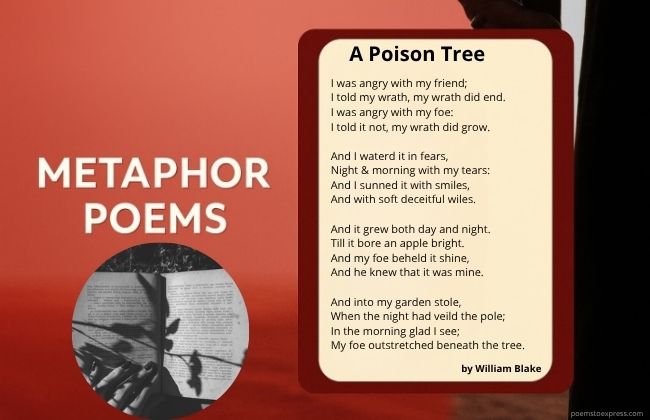“To thine own self be true.” This timeless phrase, spoken by Polonius in William Shakespeare’s Hamlet, has transcended its literary origins to become a guiding principle for personal integrity and self-awareness.
Though penned in the early 17th century, its relevance remains strikingly modern, resonating in conversations about authenticity, morality, and personal identity. At its core, the phrase calls for an unwavering commitment to understanding and staying true to one’s own values, beliefs, and nature.
But what does it truly mean to be “true” to oneself? Does this entail pursuing our desires unchecked, or does it suggest maintaining a moral compass in a complex, often contradictory world? These questions make the phrase both profound and universal, inviting us to reflect on its implications in our daily lives.
This post will explore the depth of this enduring wisdom, examining its roots, interpretations, and why it continues to inspire individuals to live with honesty and purpose today.
Table of Contents
Origins and Context
The phrase “To thine own self be true” has its foundations in the works of William Shakespeare. It specifically originates from one of his most famed plays, set against the backdrop of the Elizabethan era.
William Shakespeare is widely regarded as one of the greatest writers in the English language. He authored “Hamlet,” where this noteworthy phrase appears. His writings have had a profound influence on English literature and have been a source of literary study for centuries.
The Play: Hamlet
In “Hamlet,” the origin of the phrase “To thine own self be true” is found in Act I, Scene 3. It is delivered by the character Polonius as part of advice to his son Laertes. The drama unfolds in Denmark and revolves around themes of revenge, tragedy, and morality.
Elizabethan Era Influences
The societal fabric of the Elizabethan era is woven into the text of “Hamlet.” During this time, personal honor, adherence to social etiquette, and the pursuit of favor in the royal court were highly valued. These cultural nuances color the meaning and relevance of Polonius’s advice, reflecting the practices and beliefs of the time.
Context in Hamlet
When and Where the Line is Spoken
The line is delivered by Polonius as a piece of parental advice to his son, Laertes, who is about to depart for France.
Polonius delivers a lengthy speech filled with a series of life lessons, culminating in the statement:
"This above all: to thine own self be true,
And it must follow, as the night the day,
Thou canst not then be false to any man."
This closing remark is meant to remind Laertes to remain honest and true to both himself and others.
Key Points About the Scene
- Polonius, as a father, is fussing over Laertes’ departure, filling the scene with conventional and overly verbose advice.
- The speech encompasses common Elizabethan-era expressions and clichés, such as “Neither a borrower nor a lender be” and “For the apparel oft proclaims the man”.
- This moment heightens Polonius’ characterization and sets the stage for understanding his hypocrisy later in the play.
Meaning of “To Thine Own Self Be True”
This phrase can be interpreted on several levels, reflecting both timeless wisdom and irony.
Literal Meaning
The line can be taken at face value:
- Self-Integrity: Polonius advises Laertes to live authentically and align his actions with his inner values.
- Truthfulness: Keeping true to one’s identity ensures one remains truthful not only to oneself but also to others.
Broader Interpretations
However, scholars suggest layers of nuance in the meaning:
- Individualism and Morality
The advice implies striving to act with honesty and moral consistency. Staying true to one’s beliefs prevents self-deception or leading a life defined by hypocrisy. - Self-Preservation
Others interpret Polonius’ words as self-serving advice. To Polonius, “truth” may prioritize personal gain over broader ethical considerations. This view aligns with his later actions, where looking out for his own interest leads to deceit and manipulation. - Irony
Polonius’ advice goes unheeded by himself—the very man who violates his own principle through underhanded schemes later in the play.
Polonius as a Character
The Character’s Traits
- Verbose and Pedantic
Polonius is portrayed as long-winded and pompous. His advice often veers toward platitudes, highlighting his tendency to use empty rhetoric rather than deep wisdom. - Scheming and Hypocritical
Despite his advice to Laertes, Polonius engages in spying and deceit:- He instructs his daughter, Ophelia, to manipulate Hamlet.
- He eavesdrops on Hamlet and Queen Gertrude, ultimately leading to his death.
- Shakespeare’s Purpose
Polonius’ dual roles as a comical figure and a schemer enhance Shakespeare’s critique of courtly politics. His contradictory nature reflects the broader theme of appearance versus reality in Hamlet.
Irony in the Advice
Polonius’ famous line is inherently ironic:
- While urging Laertes to pursue authenticity and adhere to principles, Polonius himself behaves in ways that betray his advice. He is manipulative, dishonest, and far from “true” in his dealings.
- His intrusive behaviors, such as eavesdropping, directly contrast with the lofty virtues he espouses.
Humor and Irony in Shakespeare’s Writing
Why is Polonius a Comic Character?
- Shakespeare imbues Polonius with humor through his absurdly long speeches and penchant for stating the obvious.
- Critics often describe his speech as a parody of parental concern, with Polonius portrayed as comically unaware of his own limitations.
Irony Within Polonius’ Death
- Polonius dies in an act of foolishness—spying on Hamlet from behind a curtain—and his deceitful tendencies (“being false to others”) ultimately lead to his downfall.
- His death underscores the destructive consequences of failing to heed one’s own advice.
Broader Themes in Hamlet
Appearance vs. Reality
- Polonius’ actions exemplify the play’s central theme of contradictory appearances—characters often act contrary to their stated values and intentions.
- His intrusion into private affairs contrasts starkly with the ideal of honesty and trust he preaches to his son.
Moral Ambiguity
The phrase underscores Hamlet’s exploration of ethical dilemmas. While being “true” to oneself seems like noble advice, it requires constant questioning of what constitutes integrity and whether self-interest might conflict with moral duties.
Universal Appeal
Despite its ironic tone in Hamlet, the phrase has timeless relevance:
- Today, it is often used as a call for personal empowerment and authenticity.
- Polonius’ hollow delivery in the play poses a question – is “being true” an easy ideal or a lifelong challenge?
Modern Interpretations of “To Thine Own Self Be True”
Cultural Legacy
- The phrase has transcended the play, becoming a staple in discussions on individuality and ethics. It appears in motivational writing, art, and pop culture as a call to self-awareness.
- It often symbolizes adhering to one’s convictions, even under societal pressure.
Diverse Usage
While Shakespeare’s intended meaning may have been ironic, the quote has been embraced:
- Parents use it as advice for children leaving home, encouraging honesty and integrity.
- Businesses adopt it in marketing, equating “truth” with quality and reliability.
- Psychologists reference it in promoting authenticity as key to psychological well-being.
You might also like:




